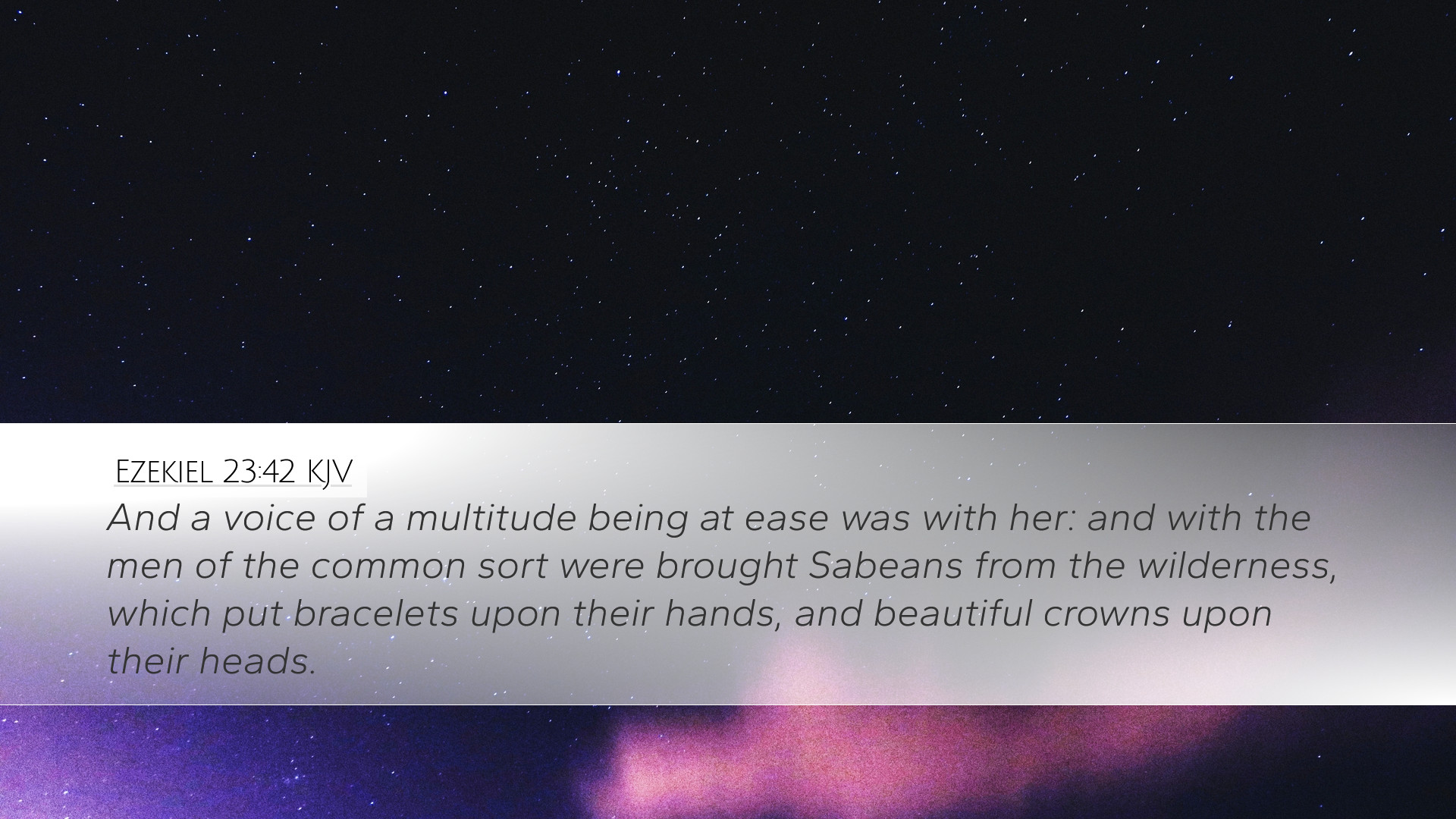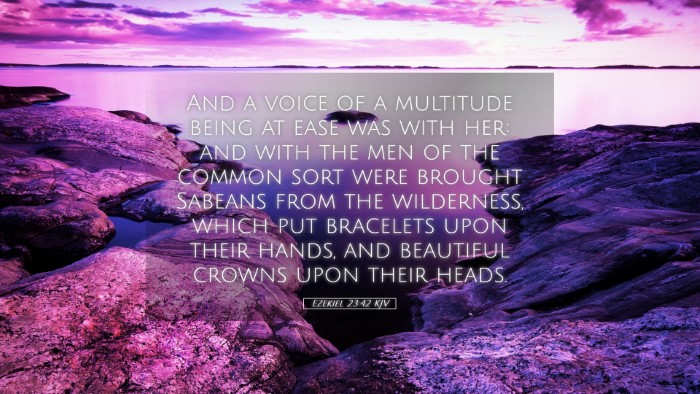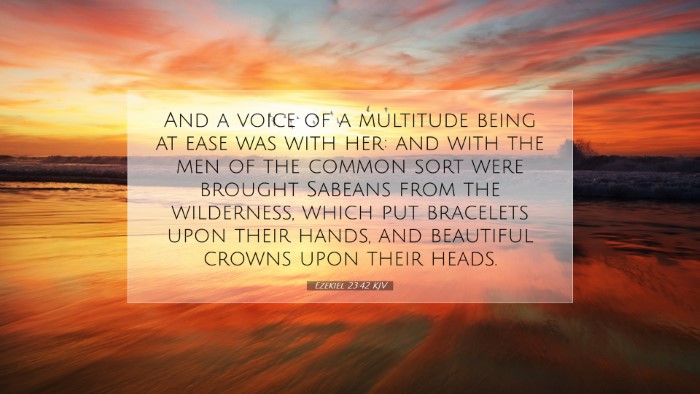Bible Commentary on Ezekiel 23:42
Ezekiel 23:42 presents a vivid depiction of the moral and spiritual decay of two sisters, symbolizing the cities of Samaria and Jerusalem. This verse is part of a larger allegorical narrative in the book of Ezekiel, which employs striking imagery to convey deep theological truths regarding Israel's infidelity and divine judgment.
Context and Overview
This chapter forms a critical component of Ezekiel's prophetic ministry, where he addresses the unfaithfulness of Israel through the metaphor of two women, Oholah (Samaria) and Oholibah (Jerusalem). It serves as a warning against apostasy and the consequences of spiritual harlotry.
Key Themes in Ezekiel 23
- Idolatry and Infidelity: The sisters’ actions symbolize Israel’s turning away from Yahweh to pursue pagan practices.
- Judgment and Consequences: The expected divine judgment serves as a reminder of God's holiness and justice.
- Divine Compassion vs. Human Rebellion: The juxtaposition of God's desire for a faithful relationship with Israel's continual rebellion.
Verse Analysis: Ezekiel 23:42
In this verse, Ezekiel describes a scenario where the people are described in a revelrous context, which Matthew Henry elucidates as the bleak reality of societal debauchery linked directly to spiritual unfaithfulness.
Matthew Henry’s Commentary
Henry emphasizes the emotional and moral degradation implied in the verse. He interprets the imagery of revelry as indicative of the profound depravity within the heart of the community. He notes that such behavior reflects disloyalty not only to God but also to the moral standards of their covenant.
Albert Barnes’ Insights
Barnes observes the cultural context of the time, identifying rituals and rites engaged in by the people in their societal gatherings, which directly clash with the holiness demanded by their covenant relationship with God. He argues that these practices signify a rejection of the truth and a willingness to align with the corrupt practices of neighboring nations.
Adam Clarke’s Interpretation
Clarke provides a historical lens, reminding readers of the cultural and religious integration that occurred within Israel, leading to these practices becoming not just common but ceremonial in nature. He articulates that very act of participation in such revelries is a metaphor for spiritual unfaithfulness towards God.
Theological Implications
The implications of Ezekiel 23:42 are far-reaching, calling both ancient and modern readers to examine their spiritual fidelity. The warnings presented in this verse resonate with the timeless struggle against idolatry in various forms.
Warning to the Contemporary Church
This passage serves as a cautionary tale for today's congregations. The enticements of modernity can distract and lead believers away from maintaining a faithful relationship with God. As such, pastors and theologians are urged to reflect on these themes and address them within their communities.
Call to Repentance
In light of this scripture, there emerges a compelling call for repentance and restoration. The church is reminded that God desires a pure and faithful relationship and that empty rituals cannot substitute for genuine worship and fidelity.
Conclusion
Ezekiel 23:42 stands as a striking reminder of the consequences of spiritual unfaithfulness. As we reflect on the rich commentary from Matthew Henry, Albert Barnes, and Adam Clarke, we gain essential insights into the serious nature of idolatry and the challenge to remain steadfast in our covenant with God.
May this passage inspire leaders, scholars, and congregants alike to pursue a deeper understanding of their faith, encouraging them to seek a relationship built on trust, loyalty, and reverence for the divine.


